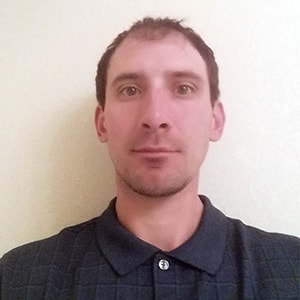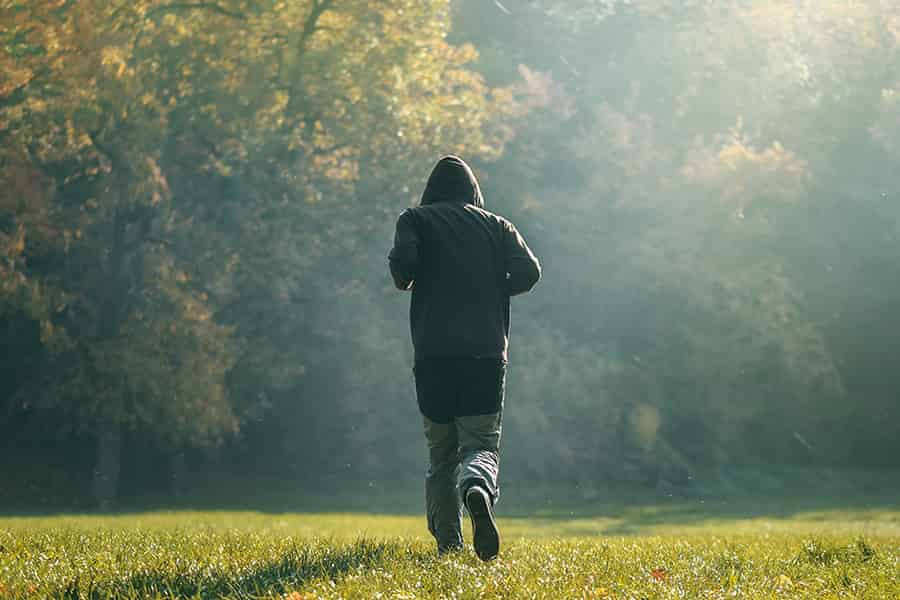Dream Journal
 Note From Dr B.
Note From Dr B.
The Ancient Greeks identified four Cardinal (pivotal) Virtues sustained in the face of difficulty: prudence (or wisdom over time), justice, courage, and temperance. Courage is sometimes equated with endurance, the ability to stand firm and immovable in the midst of danger, toils, and certain death. It is the midpoint between cowardice and recklessness, which are the objects of fear and daring, respectively. Fear is a powerful feeling that arises when we sense danger, and when level of danger increases we feel more fear. Cowardice is the shortage of courage keeping us from acting in the face of, or in spite of, fear. Daring is a way of being that ignores danger; it allows us to take action in the face of danger. When the level of danger increases, our daring is reduced/checked. If we ignore the increasing level of danger, we show recklessness and act with an excess of courage.
While at Two Dreams, clients “face weakness with strength and fear with courage .” The process of identifying and expressing feelings is an important part of recovery work. What do we fear as we begin the journey of recovery? Do we fear the loss of devotion to a substance, even though giving it up will save our lives? Do we fear living life with an aching desire that will forever go unfulfilled? Do we fear losing time that can never be recaptured? Do we fear failure? Do we fear success? In my pain blog (https://drbarthwell.wordpress.com/) I talk about the fear of getting my hopes up, only to have them dashed again. I found it more tolerable to be in pain than to contemplate investing in yet another program or activity that might not work.
Nietzsche writes ”the great epochs of our life are the occasions when we gain the courage to re-baptize our evil qualities as our best quality.” At Two Dreams, clients learn that “who you are is not defined by your mistakes, but by your potential” and to “accept the past so you can create your future.” It takes a shortage of courage, or cowardice, to bully friends and family members. If you are looking around and the only people in your life are those who support or tolerate your addiction you need to find your courage to call. It takes an excess of chemical-fueled courage to recklessly stare down death every day, every injection, every huff, every swallow. Channel that daring “to take stock and take care in a place where your best interests are not only looked after but discovered.”
The Serenity Prayer, attributed to Protestant Theologian Reinhold Niebuhr, has been used by AA since the 1940s. This prayer speaks to the serenity of acceptance, the courage of change, and the wisdom of prudence. The courage of change starts with 1) imagining a different life, 2) the self-investigation to generate insight, the recognition that a problem exists paired with a desire to change it, and 3) taking an action, and having the preparation and fortitude to hold a course against inertia, the resistance to change.
Can you imagine a life different than the one you have now?
Sincerely,
Dr. B
The Two Dreams Manifesto

Who you are is not defined by your mistakes
but by your potential.
It is time to take stock and take care
in a place where your best interests are not only looked after but discovered.
Simplify your life
so you can cope with complexity.
Accept your past
so you can create your future.
Experience serenity
in the absence of suffering.
Face weakness with strength
and fear with courage.
Where your best self takes form
and your best efforts take shape.
Professionals guide you to find the value in your values.
Peers support you with understanding and trust.
Rituals that confine you are replaced by ones that expand you
and healthy risk taking is encouraged.
This is Two Dreams
Making the Deliberate Choice to Love, to Work, to Play
Guest Writer of the Month: Kylie Lipa
According to the Merriam-Webster Dictionary, courage is defined as the “mental or moral strength to venture, persevere, and withstand danger, fear, or difficultly.” So what do people commonly think of when they hear that word? A typical response might be “firefighters rushing into burning buildings to save people,” or “soldiers overseas risking their lives to defend our country,” or even “a school student standing up to the class bully.” What about addicts, though? They’re probably not the first ones who come to mind.
I work in Cincinnati, OH as an addiction services case manager for Greater Cincinnati Behavioral Health Services. The program I work for is called Paths to Recovery, and it consists of only a few case managers and a supervisor serving about 100 chronic alcoholics/drug addicts. These clients were chronically homeless, and entered our program under the “Housing First” model. This program puts a focus on finding permanent housing for our clients before working with them on recovery. We also use the harm reduction approach with clients, aiming to reduce the negative consequences associated with drug and alcohol use.
Quite a few of the clients I work with have shown great courage in their lives. Many people are not aware that the rate of physical and sexual abuse experienced by addicts is significantly higher than the rate experienced by the general public. One of my clients was sexually assaulted by a stranger not once, but twice, and had boiling water thrown on her by her partner. A few of my clients have been severely beaten by their spouse/partner in the past. Many experienced abuse in their childhood. In other words, they may not have walked away without consequence, but they are survivors. They have found the strength to live with their trauma, and that takes courage.
Something else that has truly amazed me about the people I work with is their gratitude and generosity. Remember, these clients are living in subsidized housing in not-so-great neighborhoods after being chronically homeless and struggling to survive. One event that sticks out in my mind occurred after I took a woman to get food from a pantry. On the way back, she told me how grateful she was for the assistance because she used to have to walk several miles with the food. Then she told me that, even while she was homeless, she would share the food she got from the pantry with other homeless people she saw on the walk back to her shelter under the bridge. To give when you have nothing certainly takes courage.
Finally, sometimes the thing that takes the most courage is simply admitting when you need help and accepting offers of assistance; this courage has brought all of the addicts that I work with to our program.
Theme Analysis: Courage

“History, despite its wrenching pain, cannot be relived, but if faced with courage, need not be lived again.” Maya Angelou
“If you are willing to go to any length…” Alcoholics Anonymous
What is courage? The Merriam-Webster dictionary defines courage as “a mental or moral strength to venture, persevere, and withstand danger, fear, or difficulty.” The student version Merriam-Webster defines courage simply as “the strength of mind to carry on in spite of danger or difficulty.” Wikipedia defines courage as “the choice and willingness to confront agony, pain, danger, uncertainty or intimidation.”
Recovery is a journey that begins with the courageous decision to seek help, be it through a clergy, union representative, employee assistance program, therapist, physician, family member or another source. It takes courage to stop being totally dependent on something. It takes courage to face the problems that dwell within. It takes courage to admit to having a problem, and it takes courage to seek out a solution.
It takes a lot of courage to start attending a twelve-step program such as Alcoholics Anonymous. Walking into the first meeting can be intimidating; first-timers usually have no idea what to expect and come in feeling hopeless, waving a white flag of surrender. They come in anyway, though, in a monumental display of courage. Their courageousness continues throughout the recovery process. They put aside their fears in order to take on responsibilities necessary for group functioning, such as taking minutes at the group business meetings or greeting newcomers. They share their personal experiences, even when it makes them uncomfortable to do so. They emerge from their comfort zone in order to ask another member to sponsor them and guide them through the recovery experience. These acts of courage create a foundation that serve as a basis for each individual to build their recovery on. They keep coming back, going to any length to recover, even when they’re fearful.
News Highlights
Pregnancy vs. Painkillers: The Courage of Addicted Mothers
In 2012, a baby was born dependent on opioids every 25 minutes. This is a significant public health problem that is made worse by a majority of physicians lacking the training required to handle the complexities of pregnancy and addiction. Public stigma also fans the flames, encouraging pregnant women to hide in shame rather than pursue treatment for themselves and their unborn babies. It is crucial that we as a society reward the courage of pregnant women who are open about their addictions and seek medical attention.
Finding the Courage to Fight: Humanizing the Heroin Epidemic
Journalist Aaron Goodman spent a year following three long-term heroin users and documenting their lives through an eye-opening photo essay. Goodman hopes to break down stereotypes about drug users and inspire compassion for their courageous struggle through recovery. The three individuals he followed gave commentary on each of their pictures, using the photo essay as an outlet to promote change in the way people view them. The photos and captions show that drug use does not define drug users; many media outlets may represent heroin users as completely consumed by their addiction, but in many cases, including these three, that is far from the truth.
Featured Staff Member Questions: Adam Frick
 Q. What is your current position and job description?
Q. What is your current position and job description?
Recovery support specialist.
Q. Where did you work before Two Dreams and what did you do?
Assistant Food and Beverage Director at the Hilton Garden Inn in Kitty Hawk, NC.
Q. What has your journey been like at Two Dreams?
It has been a lot of fun and a great learning experience.
Q. What made you get into this profession?
I wanted to be able to help people.
Q. What is the most gratifying part of your job?
Seeing the change occur in people; watching people grow and be successful in their recovery.
Q. What do you like about the Two Dreams program?
I like the fact that my coworkers truly care about the clients; we all want to see them succeed.
Q. Where did you go to college and post-grad and what did you study?
DeVry Technical University for Computer Programming.
Q. How would others describe you? How does your personality complement the work you do?
I hope others would describe me as helpful and caring, which I think makes it easier to put myself in clients’ shoes so I can help them.
Q. What do you like to do when not at work? What are your favorite hobbies?
I enjoy hanging out with my son; that is my favorite thing to do. I also enjoy watching/playing sports, and especially surfing whenever possible.
Client Artwork
3 P’s – April 2016
Physical Well-Being, Personal Productivity, Mental Peace
Theme: Courage
Everyone calls on courage from time to time to combat fear, even when we least expect it. For example, many people (myself included) are fearful of the pain that exercise can bring about. It is important to push through the pain, though, in order to get to the benefits of Physical Wellbeing. After a few minutes of struggling with exercise, I usually find that the pain is not as bad as I expected it to be and that the benefits outweigh the downsides. Another common fear is rejection; we are afraid that we won’t live up to our potential, and therefore are less willing to seek out Personal Productivity. If we stop caring what others think, though, and pursue our dreams without fear, we can become the person we were meant to be. Additionally, many people fear change. We become accustomed to the chaos in our lives and accept the false notion that things will never get better. In achieving Mental Peace, we are able to reorganize our lives in a holistic fashion. Small annoyances seem trivial when we have a bigger picture in mind. We cannot let fear cripple us. Have the courage to take care of and love yourself; we are only as good to those around us as we are to ourselves.
“Courage doesn’t mean you don’t get afraid. Courage means that you don’t let fear stop you.”
– Bethany Hamilton
Outer Banks Community Update April 2016
As always, it’s a busy time on the Outer Banks! There has been a noticeable increase in ‘out-of-towners’ in the area, which means summer is just around the corner! The clients at Two Dreams Outer Banks have been keeping busy, attending AA/NA meetings, morning sun salutations, process groups, experiential therapy, game nights and movie nights. They have also been involved in activities such as doing service work at the local ASPCA, flying kites at Jockey’s Ridge, and making pottery at a local shop called Glazin’ Go Nuts. In community news, Nags Head, NC has passed Drone Regulations, keeping them off of the beach this summer during daylight hours. Construction has started on the Bonner Bridge with a completion goal of 2018. Also, workers have been creating a larger sidewalk in Corolla, NC to help keep pedestrians safe in the summer.
Chicago Update April 2016
There is no doubt that seeking treatment for addiction takes courage. There is a stigma associated with drug addiction that simply isn’t present for other diseases; our clients face judgmental peers, societal pressures, and the constant fear of relapse and/or inadequacy. We understand the fears of our clients and offer completely confidential treatment in a safe, understanding environment. Many clients choose our Suboxone program because we offer weekly sessions in a private office setting. Many other programs, especially methadone clinics, utilize public treatment initiatives that make substance users uncomfortable and unwilling to seek care because of the exposure.
If you are in need of Suboxone treatment or are looking for help with any other substance use disorder, give us a call at 504-510-2331; we are available 24/7 to help put your fears to rest.
NOLA Update April 2016
“Why can’t you just stop?” is probably the question most commonly asked of addicts. The words burn in the minds of the suffering individuals as they struggle to explain what they can’t even explain to themselves. “Why can’t I?”
The distressing question causes us to believe that seeking help with substance use disorders equates with weakness. Through my own journey I have realized that it takes a great deal of courage to admit that we are unable to “just stop.” I eventually found relief in knowing that I don’t have to tackle my disease alone. With help from others, I have been able to move through my fears and take steps to change my life. I have found relief in taking little steps, one day at a time, towards healthy recovery. Baby steps are necessary sometimes–as they say, “progress, not perfection.”
Please call us here at Two Dreams if you are struggling to find the courage to pursue recovery. We are here to help you on your journey towards a healthy lifestyle.
Thank you to our content contributors
For admissions and all staff call us at: (504) 510-2331
© 2016 Two Dreams. All Rights Reserved.

 Note From Dr B.
Note From Dr B. Q. What is your current position and job description?
Q. What is your current position and job description?
